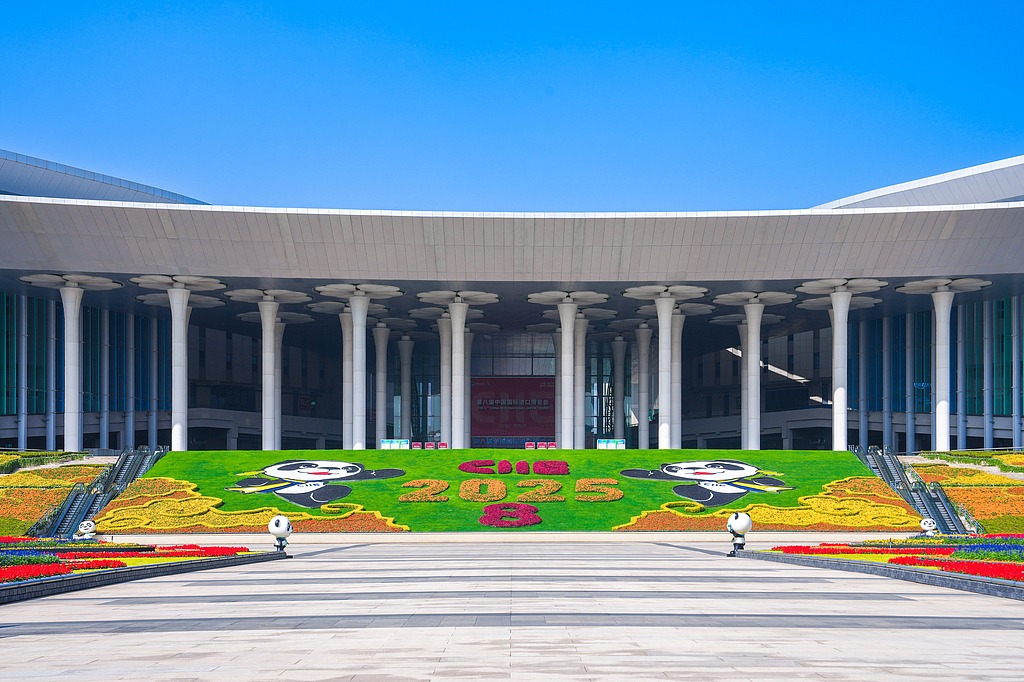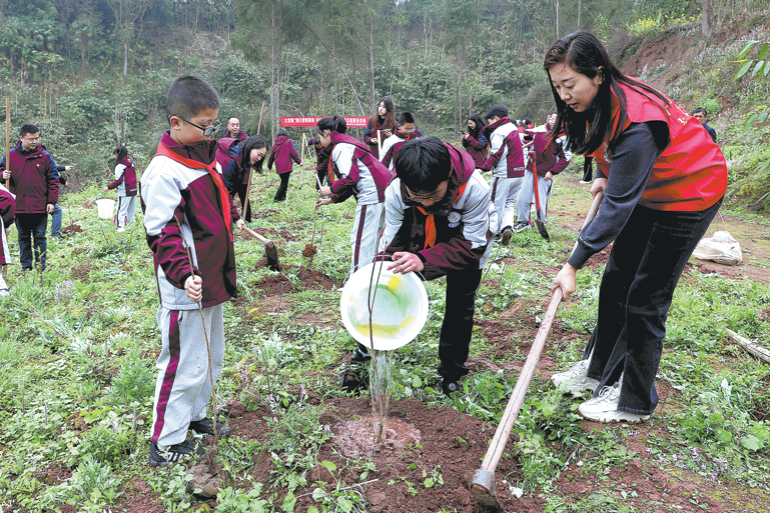A tribute to China's resilience 80 years on


The Chinese people resisted the Japanese imperial forces for 14 long years, thwarting the latter's territorial expansion plan and aggressive takeover of the whole of China. Beginning with the Mukden Incident in 1931, followed by the Marco Polo Bridge Incident that ignited a full-scale Japanese invasion of China in 1937, the atrocities and heinous war crimes committed by the Imperial Japanese Army scarred the Chinese people, including my grandmother, who was just a child in Zhongshan, Guangdong province.
With vivid memories of Mitsubishi bombers and fighter jets roaring overhead, unleashing death and destruction across her homeland, my grandmother's stories of survival echo one of the most painful periods in Chinese history.
Born in Xiaolan, Zhongshan, my grandmother, who I fondly call popo in the local dialect, often shared stories of her life in China before she migrated to Trinidad in 1952. She taught me the importance of service to family and community, and to always honor and respect the sacrifices of generations past.
Popo, who is just shy of 93, often recounts her memories of the Japanese soldiers who invaded Guangzhou in 1938. The occupation of Guangzhou and the surrounding Pearl River Delta area were key strategies used by the Japanese to create an effective blockade against the Chinese resistance forces. The seizure of southern China's major port and severing of the "Canton-Hankou Railway" impeded China's ability to receive foreign assistance — munitions and other supplies — further destabilizing Chinese defense and resistance efforts.
When thousands of Japanese troops landed in Daya Bay in Guangdong, they met with relatively feeble resistance and underprepared Chinese forces which allowed them to sweep across Guangzhou and neighboring areas like Zhongshan and nearby villages.
In those somber moments we often shared, popo recalled some of the most brutal acts of torture that she witnessed, her voice often trailing off in deep sorrow. She witnessed various types of water torture and other types of brutal violence being unleashed on the Chinese people in her community, narrating the chilling stories that left me, as a teenager, horrified. Men, women, children and even livestock in the villages perished at the hands of the Japanese soldiers armed with 15 inch bayonets at the end of their rifles — one of the hallmarks of Japanese weaponry then.
Leaving behind her entire world and everything she cared for as a young girl, she fled to the mountains to escape the Japanese bombs falling from the skies. The loud whirring of Japanese bombers' engines and the thunderous air strikes in the distance raised fears that the threat of Japanese invasion was real, forcing mass evacuations across Guangzhou and surrounding areas. She witnessed her hometown being completely destroyed by the air raids.
Displaced from their home with little or no food, water or other resources, my grandmother and thousands of other Chinese people endured famine-like conditions. She remembers collecting small branches to be used as firewood to keep a faint fire burning — small enough not to draw the Japanese army's attention.
Those very mountains where my grandmother hid, the Wugui Mountain, were the crucible of the resistance against Japanese aggression in southern China. The mountains were home to guerrilla bases and civilians who plotted daring ambushes to sabotage the Japanese army's plans and potential attacks. With hearts and minds united under one cause, the guerrilla warfare tactics were a key facet of Guangdong's long resistance and fierce struggle against the Japanese forces.
China today is remarkably different from the China of those times. The grand celebrations and military parade held in Beijing to mark the 80th anniversary of the victory in the Chinese People's War of Resistance Against Japanese Aggression (1931-45) and the World Anti-Fascist War on Sept 3 stood in stark contrast to the emotional trauma and scars my grandmother and many people of her generation suffered.
President Xi Jinping, in his speech, reiterated that China is committed to maintaining global stability and promoting peace. As a country that claimed 35 million casualties in the war of resistance against Japanese aggression, the grand military parade was a symbolic reminder of the resilience and fighting spirit of the Chinese people, and a nation's resolute promise that it will never allow those tragedies to happen again.
As a Chinese descendant, my grandmother's stories became my inheritance, and my duty to honor historical truth. I carry forward her voice in paying tribute to the enormous sacrifices made by the Chinese people, who endured untold suffering to prevent Japanese occupation. Such stories ensure we never forget the cost of war and the value of peace.
The author is former ambassador of the Republic of Trinidad and Tobago to the People's Republic of China and a trade and investment adviser to China and the Americas.
The views don't necessarily represent those of China Daily.
If you have a specific expertise, or would like to share your thought about our stories, then send us your writings at opinion@chinadaily.com.cn, and comment@chinadaily.com.cn.


































